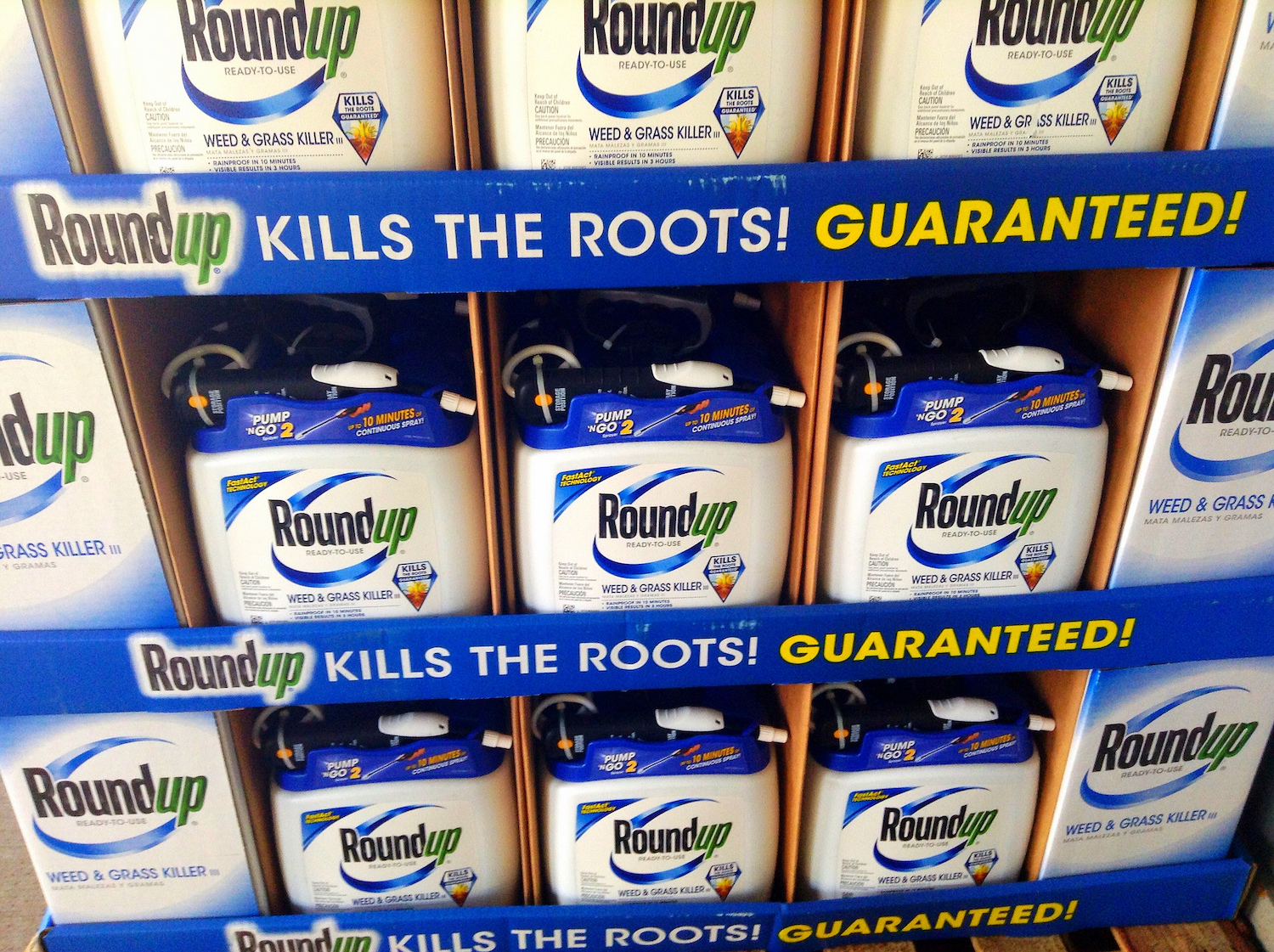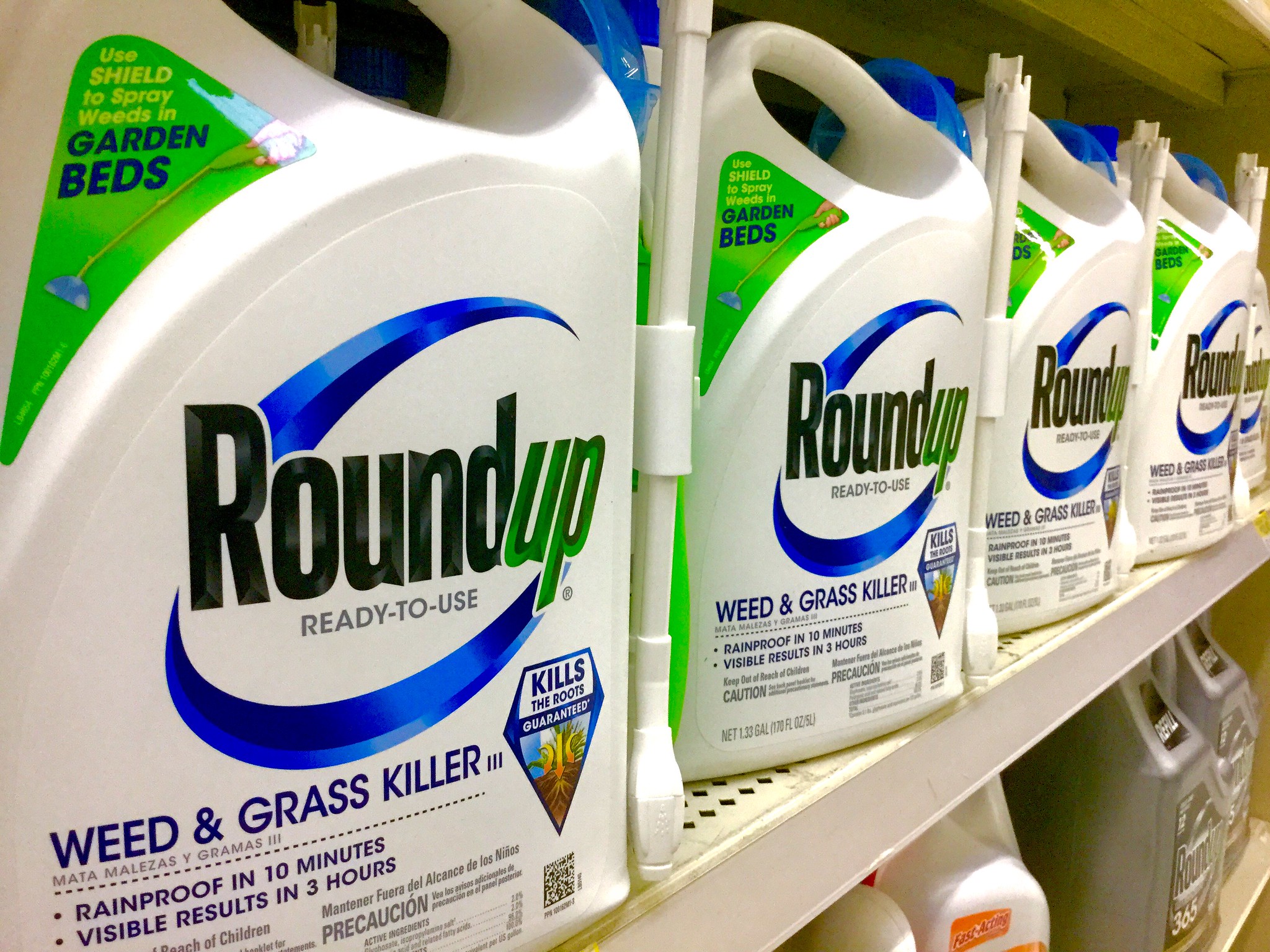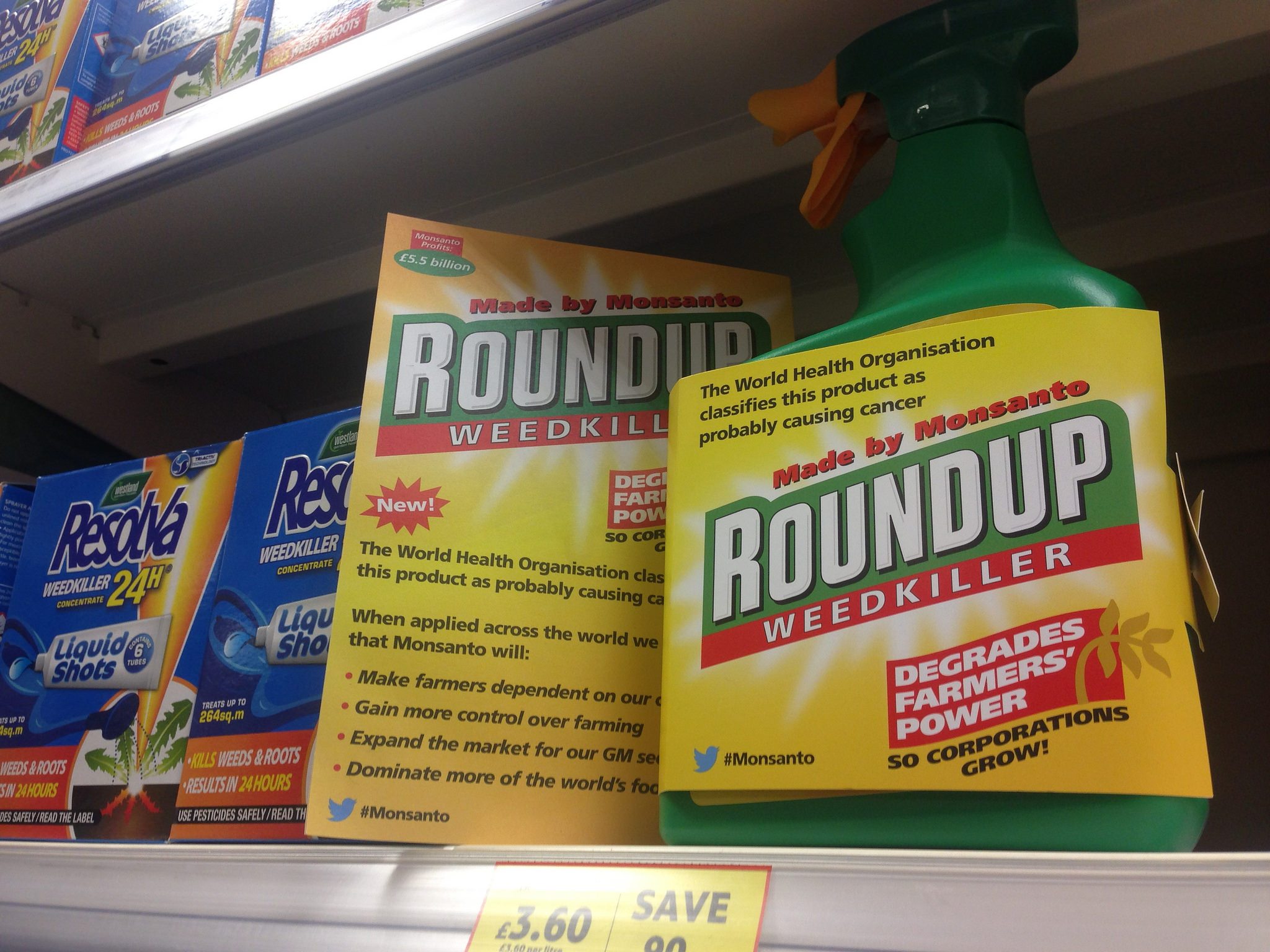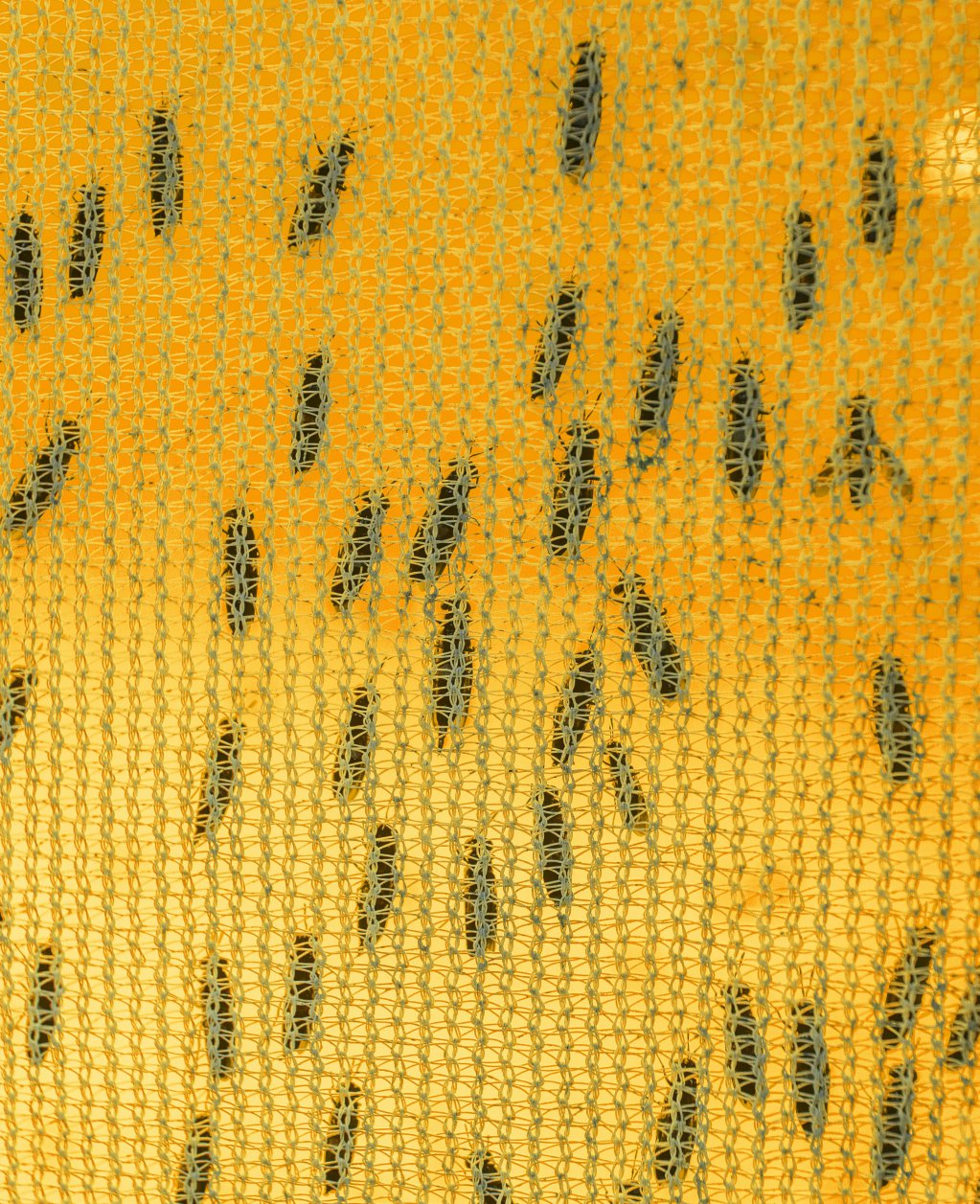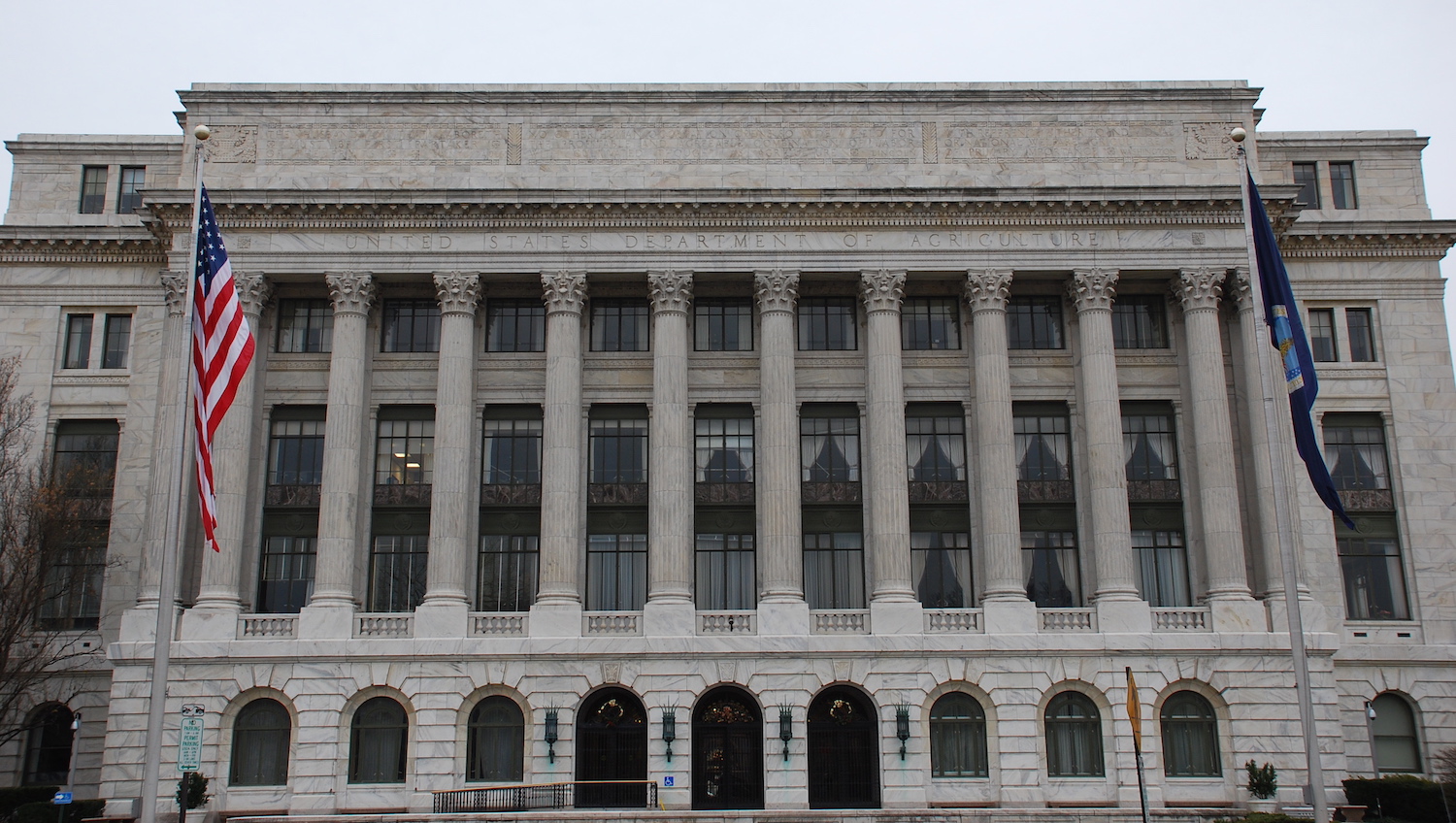UPDATE, 6:07 p.m., 3/27/2019: The jury has decided to hold Bayer subsidiary Monsanto liable for the plaintiff’s cancer diagnosis. Monsanto is on the line for $80 million in damages.
Roundup, the controversial and ubiquitous weedkiller produced by German pharmaceutical and life sciences company, Bayer AG, caused non-Hodgkin’s lymphoma in Edwin Hardeman, a 70-year-old Santa Rosa man who’d used it for decades, a six-person jury ruled on Tuesday in the U.S. District Court in San Francisco.
This is the second time that a jury has found the agrochemical company caused a user’s cancer.
In August of last year, a California Superior Court jury fined the company $289 million in damages after finding it responsible for causing former school groundskeeper Dewayne “Lee” Johnson’s terminal cancer in the first case to go to trial. The penalty was later reduced to $78 million by a judge, and is currently being appealed. Johnson may not live long enough to see a payout.
The next steps could get a bit tricky. Bayer’s Monsanto unit may ultimately be held accountable in this case, The Wall Street Journal reports (paywall). The agrochemical company was purchased by Bayer AG in 2018 after a protracted investigation into whether the purchase would violate U.S. antitrust laws. In the next phase of the trial, the jury will decide whether Bayer’s Monsanto unit is liable for the damages, and what exactly those damages will cost the company.
These two decisions mark a difficult start for Bayer in what could be a string of additional trials to come related to the glyphosate-based herbicides the company produces. According to Marketwatch, there are over 11,000 additional suits from farmers, home gardeners, and landscapers in the pipeline, that will aim to hold the company accountable for causing non-Hodgkin lymphoma and other cancers.
In a statement emailed to The New Food Economy, Bayer maintained that its glyphosate-based weedkillers were not responsible for causing cancer in users. Additionally, it rejected the idea that this decision was a “bellwether” for future lawsuits.
“We are confident the evidence in phase two will show that Monsanto’s conduct has been appropriate and the company should not be liable for Mr. Hardeman’s cancer. Regardless of the outcome, however, the decision in phase one of this trial has no impact on future cases and trials because each one has its own factual and legal circumstances.”
Update, March 19, 2019, 8:40 p.m.: An earlier version of this post erroneously said that this decision is the second time Bayer AG has been found liable for causing cancer. Only causation has been established so far. The jury will decide on liability at a later date.
